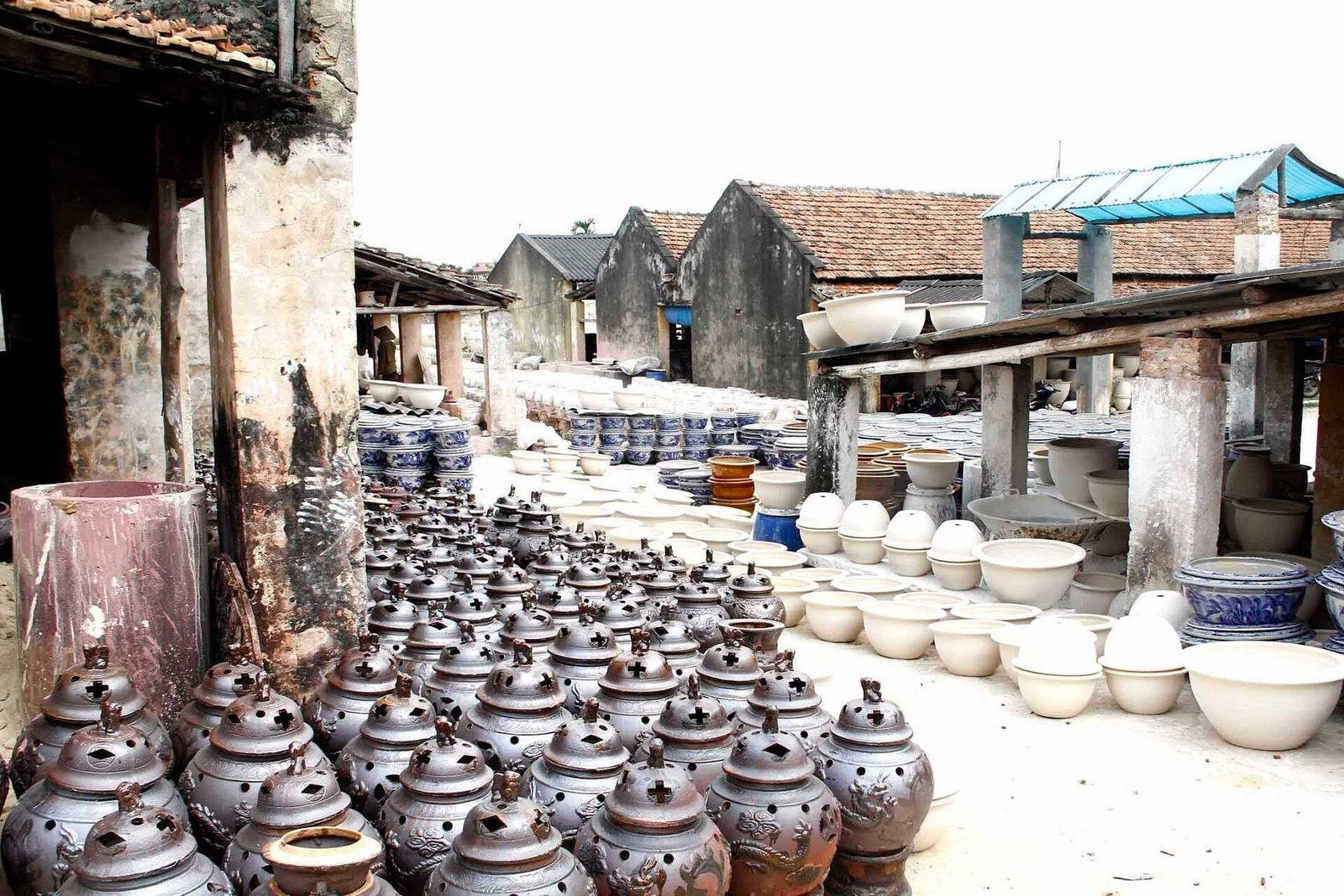
Welcome to Bat Trang Ceramic Village, a charming and picturesque destination located on the outskirts of Hanoi, Vietnam. Renowned for its centuries-old tradition of pottery making, Bat Trang offers visitors a unique opportunity to immerse themselves in the artistry and craftsmanship of Vietnamese ceramics. Join us as we explore the rich history, vibrant culture, and creative experiences that await you in Bat Trang Ceramic Village.
Bat Trang Ceramic Village has a history that spans over 700 years. It was established during the Ly Dynasty (11th – 13th century) and has played a significant role in Vietnam’s ceramic industry ever since. The village’s favorable location, near the Red River, provided access to abundant clay deposits and convenient transportation routes for trading ceramics throughout the region.
As you wander through the village, you’ll encounter numerous pottery workshops and studios where skilled artisans continue the age-old tradition of ceramics. Step inside these studios and witness the process of creating exquisite pottery pieces firsthand. From shaping clay on a potter’s wheel to intricately painting and glazing finished pieces, you’ll witness the meticulous craftsmanship that goes into each creation.
Many studios welcome visitors to try their hand at pottery making. Under the guidance of experienced artisans, you can unleash your creativity and create your own unique ceramic masterpiece. Whether it’s a bowl, vase, or decorative item, this hands-on experience allows you to connect with the art form and take home a cherished memento of your time in Bat Trang.
The bustling pottery market in Bat Trang is a delight for art enthusiasts and souvenir collectors. Stroll through the narrow alleys and browse through an array of pottery items, including tableware, decorative pieces, and intricately designed sculptures. From traditional designs reflecting Vietnamese heritage to contemporary and innovative creations, there is something to suit every taste.
One of the highlights of visiting Bat Trang Ceramic Village is the opportunity to interact with the artisans themselves. Strike up a conversation with the potters, glazers, and painters as they work on their creations. They are often happy to share their knowledge, techniques, and stories, giving you a deeper understanding of their craft and the cultural significance of ceramics in Vietnamese society.
Bat Trang Ceramic Village offers more than just pottery-making experiences. Immerse yourself in the local culture by exploring the village’s charming streets, lined with traditional houses, temples, and communal spaces. Observe the daily lives of the villagers as they go about their work, preserving the distinct cultural heritage of Bat Trang.
To gain a comprehensive understanding of the village’s history and the evolution of ceramics over the centuries, a visit to the Bat Trang Traditional Ceramics Museum is highly recommended. The museum houses a diverse collection of ceramics, including antique pieces, historical artifacts, and contemporary works of art. Through the exhibits, you’ll gain insights into the village’s past, the techniques employed, and the cultural significance of ceramics in Vietnam.
To make the most of your visit to Bat Trang Ceramic Village, here are a few practical tips:
Bat Trang Ceramic Village offers a unique and immersive experience for art lovers, history enthusiasts, and those seeking to connect with Vietnamese culture. Explore the pottery workshops, try your hand at creating your own ceramic masterpiece, and browse through the vibrant market. Through engaging with the artisans and experiencing the village’s rich heritage, you’ll gain a deeper appreciation for the artistry and craftsmanship that has made Bat Trang a celebrated destination in the world of ceramics.
Subscribe to see secret deals prices drop the moment you sign up!
